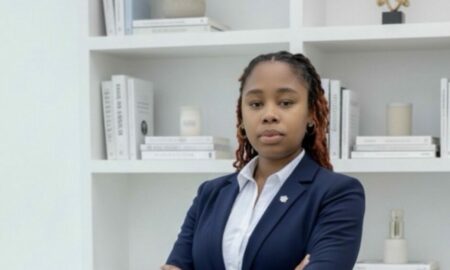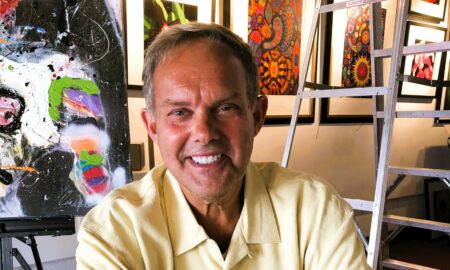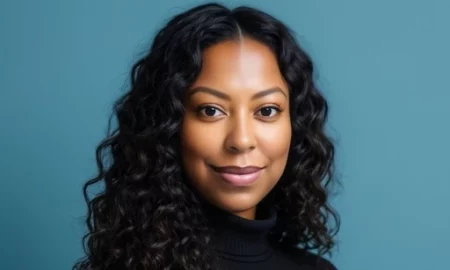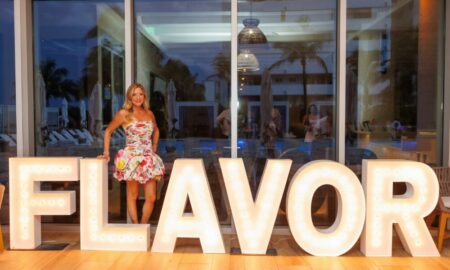
Today we’d like to introduce you to Nicole Perry.
Nicole, can you briefly walk us through your story – how you started and how you got to where you are today.
I took my first intimacy for the stage workshop from Laura Rikard of Theatrical Intimacy Education in the summer of 2018. I searched out intimacy work, not because I had had a negative experience with a scene partner, director, or choreographer. Rather, I wanted to make sure that I, as a teacher and creator, had the best practices available, to do the best job, telling the best story, in ways that served my performers and audiences, that I could!
I had recently choreographed a musical for high school students in which one student was distressed about the onstage kiss because this student had never kissed anyone, ever. And the director didn’t set it or offer any thoughts or even seem to want to rehearse it with them. (Which I do understand, as intimacy with minors is a difficult thing, complete with legal issues on top of power dynamics and teenage hormones.) So as the choreographer, I set it (something I would NOT do now)- mainly to ease the anxiety experienced by the students. In doing this, I thought, “It is so weird that there is no standard for doing this!” So, I started looking to see who else was experiencing this and working on these types of encounters. I found TIE and Intimacy Directors International online, and read everything they had in the free resources. Shortly thereafter, the South Florida Theatre League brought in Laura.
I went to the workshop, expecting it to be packed! This was amazing, relevant work that people in all levels of theatre, not to mention dance and opera, would benefit from. It wasn’t. I mean, there was a good group. But for a topic I thought was so important, I expected more humans to be interested. In that first workshop, I realized how much my own choreographic and performance experiences, and particularly my work in Laban Movement Analysis, supported the idea of choreographing intimacy. I also realized that this was a skill that needed more learning and practice.
So, six months later, I enrolled in a 3-day workshop for performers, choreographers, and directors with Tonia Sina and Alicia Rodis, 2 of the co-founders of Intimacy Directors International (now disbanded). We learned about the Pillars of the IDI Method, the history of the work, and I even got to practice choreographing. So, a little on the history. Tonia wrote her Master’s Thesis on Intimacy for the Stage in 2004. This work is not new, nor is it reactionary to the #metoo movement. It has, however, shown its relevance and importance even more as performers are speaking out against the abuses they’ve experienced in their respective rehearsal rooms. And again, this affects not just theatre, but dance and opera as well. But, Tonia was drawn to this work because she saw a need- we choreograph dances and fights. We coach text and dialect. But what do we do to prepare, protect, and professionalize intimate encounters on stage? And she found the answer to be “nothing documented nor consistent”. So, she set out to change that.
After my three days with IDI, I was interested in using and pursuing intimacy choreography as part of my creative work. In order to certify with IDI, one needs to have a certain number of hours of training with them. So, my next step was to apply for their 9-Day Choreography/Pedagogy Intensive. I did, and was accepted! I got to train with intimacy choreographers and directors from literally all over the world in May 2019. We were coached by the women leading this field in theatre, from regional to Broadway, and on TV and film. At the conclusion, I felt ready to take this work back to South Florida.
Since then, I have trained more with TIE. In my role at Momentum Stage, we brought Dan Granke of Intimacy Directors and Coordinators down to South Florida for Workshops in October 2019. I’ve also been adding to my learning by taking classes and reading books on mental health and trauma, conflict negotiation, and ethical issues surrounding touch and intimacy. This is definitely not a field that one can just learn a movement technique and call it a day. I recently completed my Laban/Bartenieff Movement Analysis certification with Integrated Movement Studies, and my final project was on using the Laban work in Intimacy Choreography.
I have the honor of being South Florida’s first resident Intimacy Choreographer, working with Measure for Measure Theatre Company (Sunrise, FL). I’ve worked on “In the Heights” and “Island Song” with them. Unfortunately, due to the COVID19 pandemic, “Island Song” was postponed after Opening Night. I’ve also worked with Theatre Lab (Boca Raton, FL) on two shows, “The Glass Piano” and “To Fall in Love”. “To Fall in Love” is also postponed. I was recently hired by Main Street Players to work on “Rapture, Blister, Burn”, which is also postponed.
Great, so let’s dig a little deeper into the story – has it been an easy path overall and if not, what were the challenges you’ve had to overcome?
Ha! No. The first struggle is just getting people to understand what I do, what my job actually is. As this is still a new discipline, it is also challenging to “breakthrough”, and get hired, when many people and companies have been doing their work without an Intimacy Director/Choreographer for so long. That’s why I am so thankful to Daimien Matherson of Measure for Measure Theatre Company for making the commitment of hiring me for the season- it really shows the company’s dedication to artistic excellence and caring for their artists. I’m also grateful for my work at Theatre Lab. “To Fall in Love” stars Theatre Lab’s AD, Matt Stabile, across from his real-life wife, Niki Fridh. It would have been easy for them to say, “oh, we have a lot of trust. We know what we’re doing.” And they totally do! But they are committed to being a part of upholding best practices in the industry, and that means bringing in an intimacy director for intimate scenes, just like you’d bring in a fight director for fight scenes.
But this global pandemic has been the biggest setback for me, as I cannot do the work I love (and I’m sure many artists feel the same way). Launching a non-profit (Momentum Stage) has been its own challenge. Getting the word out about who we are, what we do, and now navigating this time of total uncertainty.
Please tell us more about your work, what you are currently focused on and most proud of.
So, my job is two-fold. One is me as an artist, as an intimacy choreographer/director. And we’ve talked about that a lot. The other part is as the founder of Momentum Stage, a non-profit company that provides resources for performing artists and teachers of the performing arts. It is the mission of Momentum Stage to create accessible, multi-generational, live art, discussing relevant topics in our community. Momentum Stage recognizes that in every community, we are all players in each other’s stories.
We are a space where young and professional artists can grow their skills, and where arts programs and organizations can find resources for growing theirs. We offer digital resources to help you decolonize your performing arts curriculum, design your drama classes, create a consent-based classroom/rehearsal room, and other topics we think are really relevant for those creating art today We also offer live workshops and online courses in Laban Movement for Actors and/or Dancers, Consent for the Performers, private lessons, and more!
I am most proud of our work in Education. We have a huge variety of products to support best practices in the fields of both Dance and Theatre. The “Decolonize” databases are extremely meaningful to me. When I was teaching in a school, being able to offer my students learning experiences outside the typical white male canon of both dance and drama was really important to me but was not necessarily easy to find. Our databases are free to access, we take suggestions for inclusions from our social media followers, and we update them regularly.
I’m most excited about our upcoming E3 Festival! The E3 Festival aims to give young people (ages 13-18) involved in the performing arts a platform to not only perform but address social justice issues important to them and their communities. E3 stands for Expression, Engagement, and Empathy. The theme of each festival will be selected by the Youth Advisory Committee of Momentum Stage. Topics may include climate change, gun violence, LGBTQIA issues, technology, or others.
Is there a characteristic or quality that you feel is essential to success?
I have a very “move on” attitude. I don’t let things get me down or keep me down for very long. I’m an “Ok, next!” kind of person. I’m very future-oriented, trying to apply what I already know (learned through training or mistakes!) to make something new, make a change, create.
Contact Info:
- Website: https://www.nicoleperry.org https://www.momentumstage.org
- Email: nicoleperrydance@gmail.com or info@momentumstage.com






Image Credit:
Niki Fridh and Matt Stabile in Theatre Lab’s regional premiere production of To Fall in Love, postponed due to pandemic. Photo by Julia Rose Photo.
Spenser Landis and Lauren Horgan in In The Heights with Measure for Measure Theatre Company, October 2019. Photo by Kia Janell.
Sharyn Peeples and Chris Alvarez in Measure for Measure Theatre Company’s regional premiere production of Island Song, postponed due to pandemic. Photo by TallGlass Photography.
Suggest a story: VoyageMIA is built on recommendations from the community; it’s how we uncover hidden gems, so if you or someone you know deserves recognition please let us know here.

















